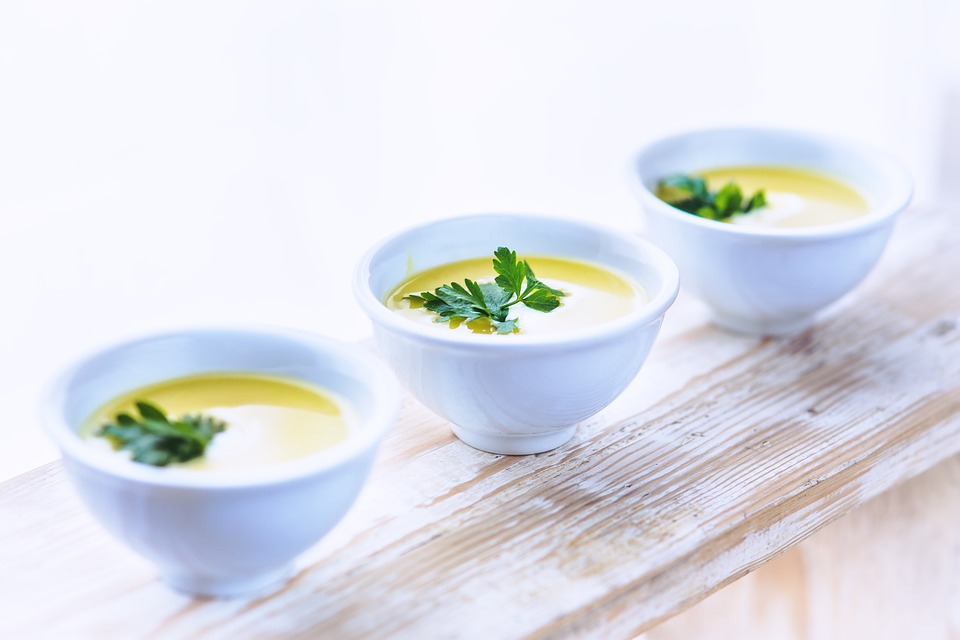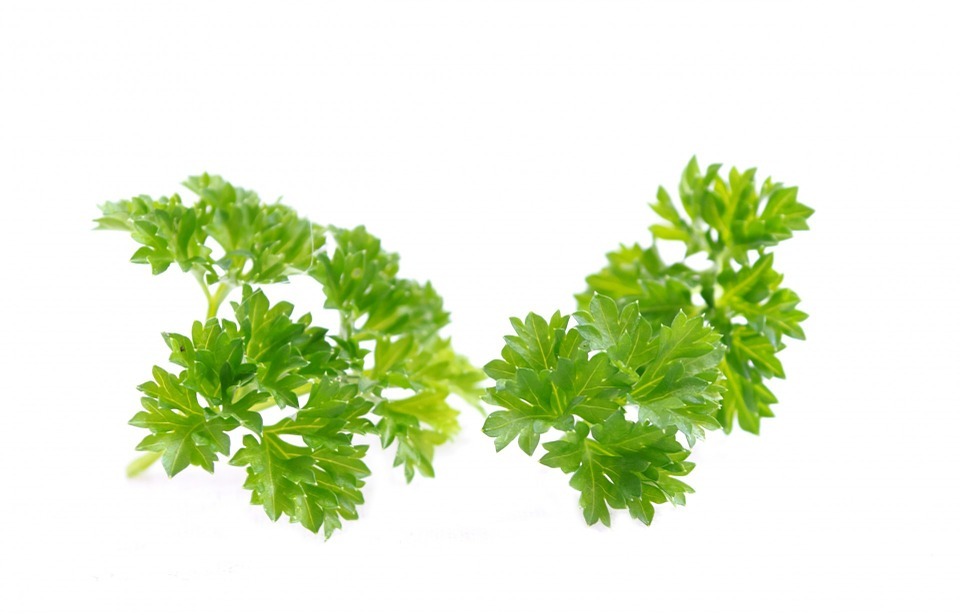This article explores the suitability of parsley for rabbits, providing a detailed guide to ensure your furry friend enjoys a healthy and balanced diet. We will delve into the nutritional benefits and potential risks of parsley, offering practical tips for incorporating it into your rabbit's meal plan. We will also discuss a wide range of other safe and nutritious greens for your bunny, helping you create a varied and delicious menu.
Part 1: Understanding Rabbit Dietary Needs

1.1 The Importance of a Balanced Diet
- Rabbits are herbivores, meaning they thrive on a diet primarily consisting of fresh hay, leafy greens, and a small portion of pellets. This combination provides the essential nutrients for their well-being.
- A varied diet is crucial for rabbits, ensuring they receive a comprehensive range of vitamins, minerals, and fibre for optimal health.
- Fibre is particularly important for their digestive system, promoting healthy gut function and preventing common health issues.
- Vitamins and minerals, such as vitamin A, vitamin K, and calcium, support overall growth, development, and immune function.
1.2 The Role of Leafy Greens
- Leafy greens offer a valuable addition to a rabbit's diet, providing a wide array of vitamins, minerals, and antioxidants. They complement the essential fibre provided by hay and pellets.
- However, it's important to introduce greens gradually, starting with small amounts and observing for any adverse reactions, as too much can cause digestive upset.
- Freshness is paramount. Always offer fresh, washed greens and avoid wilted or mouldy leaves.
Part 2: Exploring the Nutritional Value of Parsley

2.1 Vitamins and Minerals
- Parsley is a rich source of vitamin A, essential for maintaining healthy vision, skin, and immune function. It also contains vitamin C, a powerful antioxidant that supports immune health and helps protect against cell damage.
- Parsley is a good source of vitamin K, vital for blood clotting and bone health. It also provides minerals such as iron, potassium, and calcium, which contribute to various bodily functions.
2.2 Antioxidants and Other Benefits
- Parsley contains antioxidants, which help protect cells from damage caused by free radicals, potentially reducing the risk of certain diseases.
- Parsley's high vitamin C content further enhances its antioxidant properties.
- Some studies suggest parsley may possess anti-inflammatory properties, although further research is needed to confirm its effects in rabbits.
Part 3: Understanding the Potential Risks of Parsley for Rabbits
3.1 Furocoumarins: A Potential Concern
- Parsley contains furocoumarins, a group of compounds that can be toxic to rabbits in large quantities.
- Furocoumarins can cause photosensitivity, meaning the skin becomes more sensitive to sunlight, potentially leading to skin irritation and burns.
- In extreme cases, high levels of furocoumarins can cause liver damage, but this is highly unlikely with moderate consumption of parsley.
3.2 Oxalates: Binding with Calcium
- Parsley is also high in oxalates, compounds that can bind to calcium in the digestive system, hindering its absorption. This can be a concern, especially for growing rabbits, as calcium is crucial for bone development.
- While moderate consumption of parsley is unlikely to cause significant calcium deficiencies, it's essential to be mindful of this potential effect, particularly in young rabbits.
3.3 Digestive Issues: A Common Concern
- Overconsumption of parsley can lead to digestive issues in rabbits, such as diarrhoea, gas, and bloating.
- These symptoms arise due to the high fibre content and potential for digestive upset caused by furocoumarins and oxalates.
- It's essential to introduce parsley gradually and monitor your rabbit for any adverse reactions.
Part 4: Can Rabbits Eat Parsley? The Verdict
4.1 Moderation is Key
- While parsley offers some nutritional benefits, it should be given to rabbits in moderation and only as a treat.
- It is not a staple food and should never replace hay, the cornerstone of a rabbit's diet.
- Offering parsley a few times a week, in small amounts, is a safe approach.
4.2 Avoiding Parsley for Some Rabbits
- It's best to avoid offering parsley to baby rabbits, as their digestive systems are still developing and more sensitive to potential digestive upsets.
- Rabbits with existing digestive sensitivities should also avoid parsley, as it could exacerbate their condition.
4.3 Observing for Adverse Reactions
- Even if your rabbit has previously tolerated parsley, it's important to monitor them closely after introducing it, watching for any signs of digestive upset.
- If you notice any adverse reactions, such as diarrhoea, gas, bloating, or lethargy, discontinue parsley immediately and consult a veterinarian.
Part 5: Exploring Safe Greens for Rabbits
5.1 High-Fibre Greens for a Healthy Digestive System
- Timothy hay: The essential foundation of a rabbit's diet, providing essential fibre for healthy digestion. It is low in calories and high in fibre, making it ideal for maintaining a healthy weight and digestive system.
- Oat hay: A palatable alternative to Timothy hay, offering a slightly sweeter flavour. It's a good source of fibre and can be a valuable addition to a varied diet.
- Orchard grass hay: Rich in protein and calcium, making it especially beneficial for growing rabbits. It is also a good source of fibre and other essential nutrients.
5.2 A Variety of Leafy Greens for Nutritional Variety
- Dandelion greens: A natural diuretic, helping to maintain a healthy urinary tract. It is a good source of vitamins A, C, and K, as well as other minerals.
- Spinach: Provides vitamins A, C, and K, but should be offered in moderation due to its oxalate content. It's a good source of iron and folate.
- Kale: A good source of vitamins A, C, and K, but can be high in calcium, so it should be given sparingly. It's also rich in antioxidants and fiber.
- Collard greens: Similar to kale in nutritional value, but slightly lower in calcium. It is a good source of vitamins A, C, and K, as well as fiber and minerals.
- Endive: Offers a slightly bitter flavour and is a good source of vitamins A and C. It's also a good source of fiber and antioxidants.
- Romaine lettuce: Lower in calcium than other lettuces, making it a safe choice for occasional treats. It is also a good source of vitamins A, C, and K.
- Cilantro: A good source of vitamins A, C, and K, but should be offered in moderation. It is also a good source of antioxidants.
5.3 Other Safe Treats for Your Bunny
- Banana: A good source of potassium, but should be offered in small amounts due to its high sugar content. It's also a good source of fiber and vitamin B6.
- Strawberries: A delicious treat, but should be given in moderation due to their sugar content. They are also a good source of vitamin C and antioxidants.
- Blueberries: Rich in antioxidants, but should be given sparingly due to their sugar content. They are also a good source of fiber and vitamin K.
Part 6: Guidelines for Feeding Your Rabbit Greens
6.1 Gradual Introduction for Digestive Safety
- When introducing a new green, start with a small amount and observe your rabbit for any signs of digestive upset. This allows their digestive system to adjust gradually.
- If your rabbit tolerates the new green well, gradually increase the amount over a few days, ensuring a smooth transition.
6.2 Variety for Balanced Nutrition
- Offer a variety of safe greens to ensure your rabbit receives a balanced diet. This prevents nutritional deficiencies and promotes overall health.
- Avoid feeding the same greens every day to prevent monotony and promote a varied intake of essential nutrients.
6.3 Moderation for Digestive Health
- Greens should only make up a small portion of your rabbit's diet, with hay being the primary food source. This ensures a balanced intake of fibre and other nutrients.
- Offer greens in moderation to prevent digestive issues and ensure their gut remains healthy and functional.
6.4 Freshness for Optimal Nutrition
- Always ensure greens are fresh and washed thoroughly before feeding them to your rabbit. Freshness guarantees optimal nutritional value and reduces the risk of digestive upset.
- Avoid feeding wilted or mouldy greens, as these can harbour bacteria and pose health risks.
Part 7: Addressing Common Questions about Parsley
7.1 Can rabbits eat parsley stems?
- Parsley stems are generally considered safe for rabbits in small amounts. However, they contain a higher concentration of furocoumarins than the leaves, so it's best to offer them sparingly.
- Observe your rabbit closely for any signs of adverse reactions after introducing parsley stems.
7.2 Can rabbits eat curly parsley?
- Curly parsley is a common variety of parsley and is safe for rabbits to eat in moderation.
- Remember, it still contains furocoumarins and oxalates, so it's essential to limit consumption.
7.3 Is Italian parsley safe for rabbits?
- Italian parsley is another common variety that is safe for rabbits in moderation.
- It has a slightly milder flavour than curly parsley but still contains furocoumarins and oxalates.
- Introduce it gradually and monitor your rabbit for any adverse reactions.
7.4 What are the signs of parsley poisoning in rabbits?
- Signs of parsley poisoning in rabbits can include diarrhoea, gas, bloating, lethargy, loss of appetite, and tremors.
- If you notice any of these symptoms after feeding your rabbit parsley, seek veterinary attention immediately.
7.5 Can rabbits eat parsley with their hay?
- While you can offer parsley with hay, it's important to ensure your rabbit is consuming the majority of its diet from hay.
- Offer parsley as a treat, in small amounts, and observe your rabbit for any adverse reactions.
7.6 Is parsley a good source of vitamin C for rabbits?
- Parsley is a good source of vitamin C, but it's not the best source for rabbits.
- Other greens, such as dandelion greens, kale, and spinach, provide higher levels of vitamin C.
7.7 Can I give my rabbit parsley every day?
- It's not recommended to give your rabbit parsley every day. It should be offered as a treat, in small amounts, and only occasionally.
- Overconsumption can lead to digestive issues and potential toxicity.
7.8 What other herbs can rabbits eat?
- Other herbs that are safe for rabbits to eat in moderation include cilantro, basil, and dill.
- However, it's always best to consult a veterinarian or rabbit expert before introducing any new herbs to your rabbit's diet.
Everyone is watching
-

Do Rabbits Lay Eggs? (The Surprising Truth)
OTHER TYPES OF PETSThis article will unravel the common misconception that rabbits lay eggs, exploring the fascinating world of r...
-

What's a Group of Rabbits Called? (A Comprehensive Guide)
OTHER TYPES OF PETSThis article delves into the fascinating world of rabbits, exploring the various terms used to describe a grou...
-

Can Rabbits Eat Grapes? A Guide to Safe Rabbit Treats
OTHER TYPES OF PETSThis comprehensive guide will explore the safety and suitability of grapes for rabbits, providing detailed inf...
-

Predators That Hunt Rabbits: A Guide to Natural Enemies
OTHER TYPES OF PETSI've always been fascinated by the circle of life, that delicate dance between predator and prey. Growing up ...
-

Are Rabbits Nocturnal Animals?
OTHER TYPES OF PETSThe question of whether rabbits are nocturnal animals is a fascinating one, with a surprisingly complex answer...
